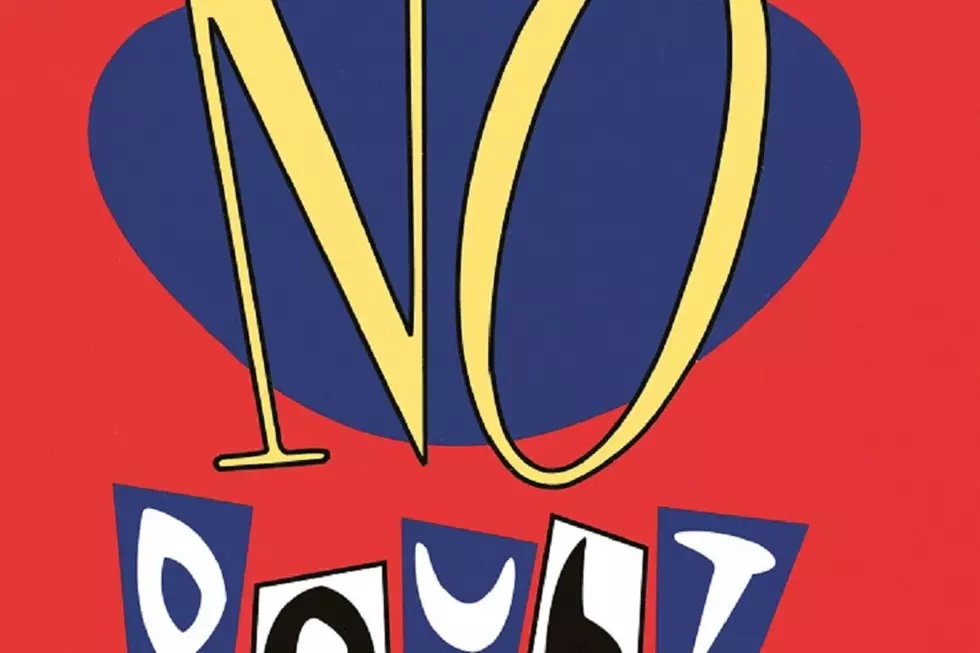
20 Years Ago: No Doubt’s ‘Tragic Kingdom’ Sparks a Ska-Punk Frenzy
While the members of SoCal’s No Doubt were using their free time for two years between 1993 and 1995 to schlep all over the greater Los Angeles area and record at 11 different studios, little did they know the result—the Matthew Wilder-produced Tragic Kingdom—would be the commercial apex for the burgeoning third-wave ska movement.
Few would’ve guessed, really; Rancid was certainly punkier and Sublime went well with weed, but it turned out neither band could match one key thing No Doubt had in their corner: Gwen Stefani. Tragic Kingdom was the sultry singer’s official coming out party, and forever changed the sub-genre.
Previously within No Doubt, Stefani’s brother (and keyboardist) Eric had run the show as the main songwriter. But as the band’s success grew and Eric’s artistic control began to wane, the disillusioned sibling bailed – moving on to an animation career with The Simpsons – while leaving his sister to pick up the writing reins. The rest, as they say, is history.
The younger Stefani responded by channeling much of her own inner turmoil into the lyrics, most notoriously the heartbreak she’d recently suffered when Tony Kanal – the band’s bassist and her boyfriend of seven years – broke up with her during the sessions. Devastated, she openly called out Kanal in songs like “Happy Now?,” “Sunday Morning” and most poignantly, in the hit ballad “Don’t Speak,” which painted the split so vividly, it felt like eavesdropping. The words were so pointed and the pain so fresh, it was inconceivable to most observers how Stefani and Kanal were even still sharing the same stage.
But that’s not to say that Stefani is some fragile little flower. The other main factor in her appeal on the album is the riot grrrl-era female empowerment she expresses quite forcibly, yet without cloying self-righteousness. It was tough not to marvel at the inarguably gorgeous, yet tough-as-nails singer hammering out pushups on the bathroom floor in the “Just a Girl” video or to chuckle at “Spiderwebs,” with Stefani blowing-off delusional would-be suitors plaguing her answering machine. (Imagine how that song would go in the age of Tinder.) All at once Stefani became the focal point of a new kind of feminism still evolving today, as seen with counter-cultural phenomena like Suicide Girls; she makes no apologies for being a “girly girl” primed for a camera lens, but if you disrespect her, she might just kick in your teeth for the offense. The band’s irreverent aesthetic was also reflected in the album title—a play on the “Magic Kingdom,” or Disneyland, in No Doubt’s hometown of Anaheim—and in one corner the cover featured rotten, fly-eaten oranges.
Musically, the album is all over the place, and that’s another large part of its charm. For although No Doubt were lumped into the ska-punk category, Tragic Kingdom defies easy labeling, often shifting through several genres just in the course of one track. “Spiderwebs,” another massive hit single from the record, starts off with the anticipated Jamaican influence—a golden blast of reggae rhythms and swooning horns—but quickly morphs into a fusion of ’80s new wave and West Coast pop-punk. “Hey You” was updated Beatles-esque mop-pop reminiscent of Jellyfish; “You Can Do It” was funky ’70s disco straight from Saturday Night Fever; and “Excuse Me Mr.” even featured a Dixieland brass breakdown. The band—showcasing the tight playing of Kanal, drummer Adrian Young and guitarist Tom Dumont—was clearly pulling out all the stops.
Response to the album started out modest, but soon built into a raging torrent that swept the group away from the club life and almost immediately made them arena regulars. Tragic Kingdom spawned an incredible seven singles including “Don’t Speak,” which peaked at No. 1 on the Billboard Hot 100, and the album was nominated for a Grammy for Best Rock Album while No Doubt were nominated for Best New Artist. The record eventually sold 16 million copies worldwide by 2004, earning RIAA diamond status in the U.S. and Canada, platinum in the U.K., and triple platinum in Australia. The band’s success also spawned sudden major-label interest in the overall ska scene, with imprints rabidly snapping up acts like Save Ferris and Reel Big Fish in hopes of landing the next No Doubt. (No other ska-punk band would come close; even Sublime’s hugely successful self-titled record sold just 5 million copies in comparison.)
Critics were mostly positive, praising the record for its tight musicianship and genre-bending stylistic schizophrenia, including Village Voice critic Chuck Eddy, who wrote, “No Doubt resurrects the exuberance new-wave guys lost when ’80s indie labels and college radio conned them into settling for slam-pit fits and wallflower wallpaper.” He was right: By 1995 the world was No Doubt’s oyster, and they weren’t about settle for dime-store pearls. The energy and attitude of Tragic Kingdom was the real thing, and audiences everywhere responded.
Life is a long chain of events that often seem unconnected at the time, but have an obvious link when compiled into one long, running narrative. It’s interesting to wonder what would’ve happened if Eric Stefani had never quit No Doubt, or even more crucial, if Kanal had never broken up with Gwen (who ended up in the arms of Bush frontman and future husband Gavin Rossdale during the ensuing tour). It’s easy to imagine Eric Stefani or Kanal kicking themselves for their respective decisions; but then again, those choices helped make Tragic Kingdom what it is. And that’s one glorious outcome few can argue against.
The Top 100 Albums of the '90s
More From Diffuser.fm









